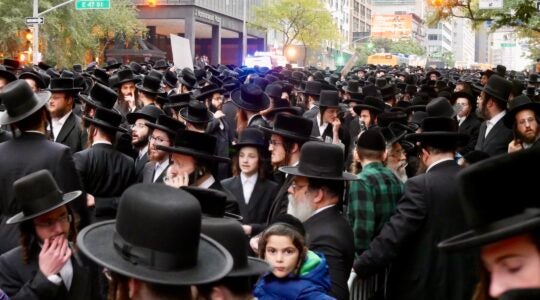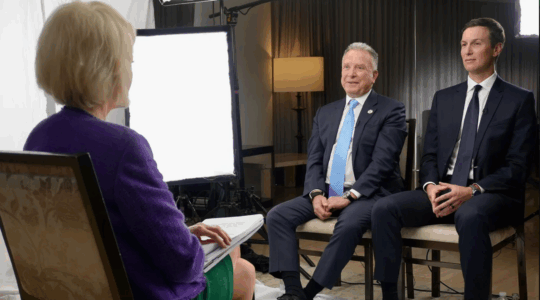(JTA) — Leaders of the Reform and Conservative movements in the United States said they were not concerned about a delegation of 20 rank-and-file rabbis who were invited to Israel to meet with Prime Minister Benjamin Netanyahu.
The Israeli government flew in the delegation of Orthodox, Conservative and Reform rabbis to meet with Netanyahu last week. Ron Dermer, Israel’s ambassador to the United States, arranged the meeting, according to Haaretz, out of frustration with criticism of Israel from the leadership of the Reform and Conservative movements.
But leaders of both movements told JTA that they had known about the meeting before it happened.
“The Conservative colleagues that went on this mission, many of them were in touch” with Conservative leadership in Israel, said Rabbi Steve Wernick, CEO of the United Synagogue of Conservative Judaism, an umbrella body. “They did not feel that they were being used as a go-around to drive a wedge between the movement leadership and rabbis in the field. … My colleagues all were well briefed and informed.”
Rabbi Rick Jacobs, president of the Union for Reform Judaism, told JTA that he supported his movement’s rabbis engaging with Netanyahu.
“I don’t know what the government’s plan was,” he said. “Colleagues who were there are among our best colleagues. We spoke to them before the mission. We think it’s a very positive thing that they come, learn as much as possible, discuss all the things that are important. I’m not sure the itinerary was a very balanced itinerary, but these are smart colleagues.”
In a statement following their meeting with Netanyahu, the group of rabbis said they were committed to Israel but not willing to offer “uncritical support.”
“In our meeting with the Prime Minister, we conveyed that our commitment to the security of the State of Israel and for the preservation of Jewish identity in the Diaspora and State of Israel is enduring and unwavering,” the statement said. “With unconditional love, yet not uncritical support, we are convinced that working together, we can face any challenge. Divided we are weakened and diminished.”
In his remarks to the prime minister, Rabbi Stuart Weinblatt of the Conservative Congregation B’nai Tzedek in Potomac, Maryland, acknowledged Israel’s security and political challenges. But he criticized the haredi Orthodox Chief Rabbinate for its control over the country’s religious affairs.
“We would be remiss if we did not raise the issue with you about the role of non-Orthodox Jews in Israel, and in the Diaspora,” he said, according to a transcript of his remarks. “This question has many sides to it – as it touches upon the issues of conversion, the monopoly and stronghold of the Haredim, the power of the Rabbanut and their Byzantine approach which turns people away from Judaism and places impediments to a sense of unity, as well as progress on the development of the egalitarian space at the Kotel. We know our realities are different – and Israel’s political system is different than ours.”
One delegation member, Rabbi Ammiel Hirsch of Manhattan’s Stephen Wise Free Synagogue, told Haaretz that he was motivated to meet with Netanyahu over frustration with his own movements’ advocacy priorities in Israel.
“Our movement is too narrowly focused on politics and religious pluralism, and not focused enough on what’s going to make or break our movement in Israel,” he told Haaretz. “All the attention is being sucked into narrow political issues – including the Kotel,” referring to a stalled plan to expand access to the Western Wall for non-Orthodox prayer service.
JTA has documented Jewish history in real-time for over a century. Keep our journalism strong by joining us in supporting independent, award-winning reporting.






